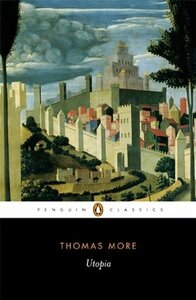Take a photo of a barcode or cover
challenging
slow-paced
Plot or Character Driven:
N/A
Strong character development:
N/A
Loveable characters:
No
Diverse cast of characters:
No
Flaws of characters a main focus:
No
I hated this. Very quickly skimmed the second half of this book, but but but, discussion of how we progress as a society in section made "reading" worthwhile.
reflective
medium-paced
Plot or Character Driven:
N/A
Strong character development:
N/A
Loveable characters:
Complicated
Diverse cast of characters:
No
Flaws of characters a main focus:
Yes
informative
reflective
slow-paced
Plot or Character Driven:
N/A
Strong character development:
No
Loveable characters:
N/A
Diverse cast of characters:
N/A
Flaws of characters a main focus:
N/A
I did not finish this book, I gave up two chapters before the end. I despise this piece of writing. I don’t know how I tried reading this by my own free will, this is the kind of book they make you read in school. The writing style is dry and tedious, meandering and full of monologues. It’s like Thomas More was elucidating his views through some guy just talking non-stop. It’s like a lecture written down. I understand this may have been the writing style of his time, but I simply cannot stand it. I’d rather read Herland.
More was the person to coin the Utopian term and lead the genre, also he wrote this in like 1516 so I don't want to be too harsh but like: women working double jobs in the kitchen? Them being presented naked to men like storefront goods? Only men upholding the authoritative jobs? And you say this is an Utopia (or Hythloday says). (In honesty, a man's utopia is a women's dystopia sometimes)
challenging
hopeful
reflective
slow-paced
Plot or Character Driven:
N/A
Strong character development:
N/A
Loveable characters:
N/A
Diverse cast of characters:
N/A
Flaws of characters a main focus:
Yes
honestly this was way better than i was expecting. i really like the core thesis of utopia as a "no-place" but after that he just goes a bit off the rails?? like how much of this is allegory and how much of this is just renaissance sandpit-scaping? honestly he gets points for reviving the platonic dialogue and expands on some of his points well, but he's also so grounded in convention that a lot of the time he seems to miss the point. case in point: the slavery. like bro you can't just start with the revolutionary thesis that perfection exists only as a hypothesis which would go on to be the foundation of utopian drama and pastiche for centuries and then go "but in this hypothetical we have slaves". like no. in this allegory, slavery should represent the cost of a façade of perfection, not.be a part of it. but anyway. it's read, it's cited and i can submit my paper with a lighter conscience but a heavy heart.
A satirically optimistic socialism from the 16th century. He's criticizing Catholics with a sarcastic communism of monasteries, but you can interpret it to criticize any movement that assumes to have a perfect solution in mind
I had a very hard time with this book. I found it be very wordy and slow, there was time while reading/listening to this that i'd start to zone out, it happened many times. This book was just unable to hold my attention at all, I was very bored while reading it.






